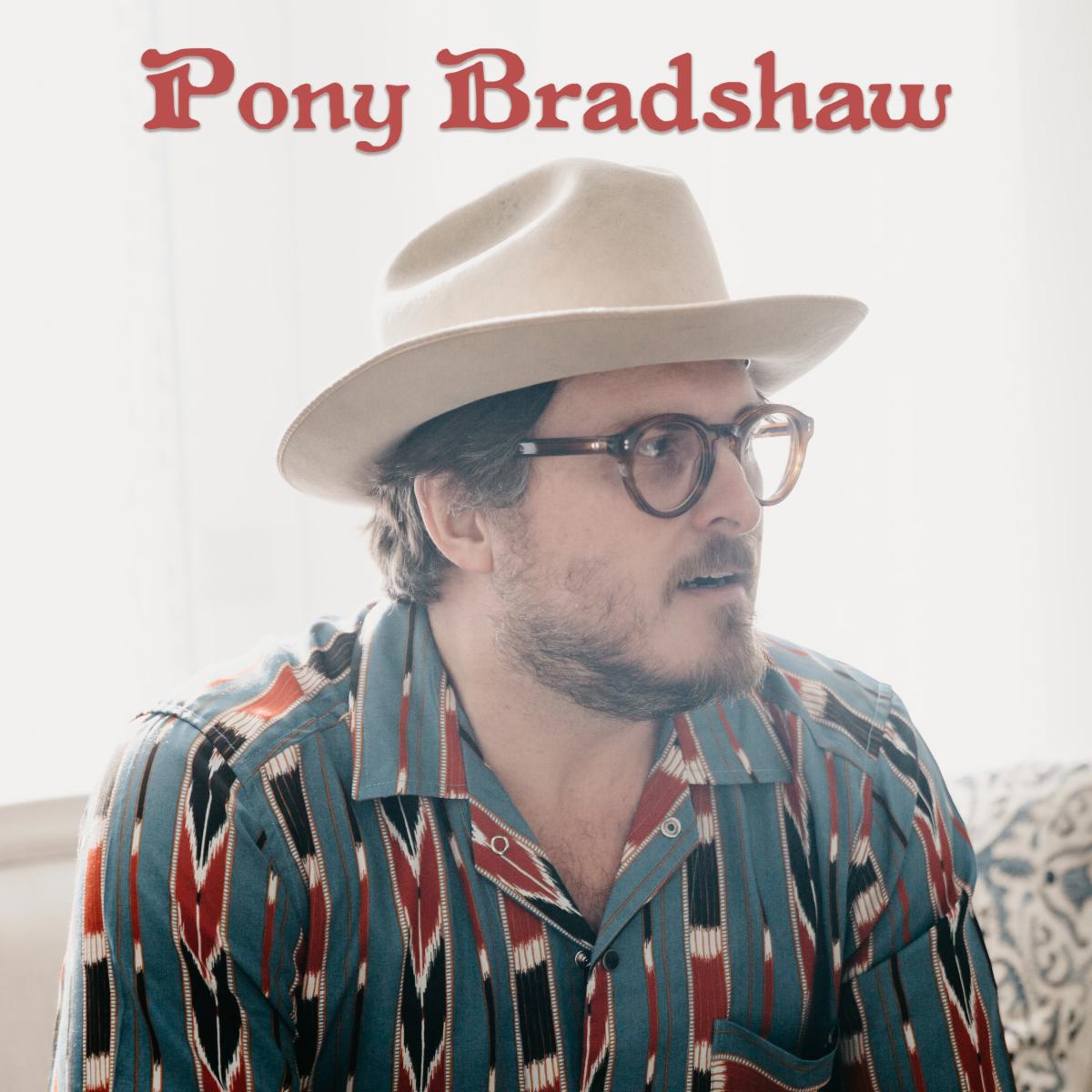
Pony Bradshaw with special guest Ryan Culwell
Pony Bradshaw
In her 2008 filmic auto-portrait, Beaches of Agnès, artist and filmmaker Agnès Varda says, “if we opened people up, we’d find landscapes.”
For Varda, those landscapes were beaches. For singer-songwriter Pony Bradshaw, they’re the hushed hills and deep valleys of North Georgia. And from the first aching thrum of “Ginseng Daddy,” the opening track off his latest record, Thus Spoke the Fool, he’s inviting us back to that beautiful, haunted place, his homeplace, to visit again.
Similar to his previous two offerings, the tracks on Thus Spoke the Fool feel less like songs you hear, and more like places you go, odes to the land and language of Appalachia, lyrical topographies paying faithful homage to the region where Bradshaw put down roots nearly two decades ago. The songs are lush with mountain laurel and tobacco leaves, taking listeners to mill towns, and American Legions, and Mineral Bluff. They’re flushed with the flood of the Coosa and Hiawassee Rivers, tense with the tenor of a buck dancer’s tapping feet.
Recorded in part in the sanctuary of an old church outside of Athens, Georgia, Thus Spoke the Fool is a taut,10-song collection, and the third and final installment in a trilogy that began with 2021’s critically lauded Calico Jim. What began as a bluegrass record alchemized during recording sessions in Nashville to create a more hybrid, textured sound, heavy on fiddle and pedal steel.
Beyond any strict genre classifications, however, it’s mountain music that bears witness to a maligned and misunderstood region by a songwriter forever contending with the notion of what it means to call a place home.
“My hope is that [my music] brings these small and big ideas forward to share a new perspective,” says Bradshaw. “It’s something I think is important and worthwhile in this strange world. Place, and community, and sticking around seem important. History does, too. Telling the story of North Georgia seems important.”
If Thus Spoke the Fool seems more at home within an oeuvre of novels and poems by writers like Wendell Berry than any musical contemporary, that’s by design. A writer deeply reverent of place and the natural world, and ever-curious about our relationship to it, Berry is a strongly felt influence in all of Bradshaw’s work, although listeners of Thus Spoke the Fool can also feel the spirit of writers like Jean Giono and Maurice Manning shimmering throughout.
“Ginseng Daddy” is a “myth-making tune,” Bradshaw says, written in the voice of the album’s narrator, “a singing raconteur,” and in the spirit of Melville. The ekphrastic “¡Viva Appalachia!” conjures Stephen Vincent Benét’s 1925 ballad, “The Mountain Whippoorwill.” Listeners of a more literary bent will hear echoes of the James Dickey poem “Buckdancer’s Choice” in the high-stepping “Housebroke.”
Thus Spoke the Fool gives us Bradshaw at perhaps his most kaleidoscopic lyrically, each song a kind of world-building vignette, vivid scenes painted with characters as real and unreal as those populating Faulkner’s apocryphal Yoknapatawpha County. But listeners should resist the impulse to assume autobiography, Bradshaw warns. His songs offer gorgeously-rendered glimpses into mountain life as he sees it, but they are, he says, primarily fictions.
“I’m a shapeshifter,” Bradshaw reminds listeners of Thus Spoke the Fool. “You can’t trust me. I’m Ginseng Daddy, and Calico Jim, and Holler Rose. Does that make me an unreliable narrator? I am all of them, but I’m none of them, too.”
Ryan Culwell
Walk around throwing punches everywhere and you’ll earn yourself an almighty ass whooping. Keep your hands in your pockets all day, though, and you’ll start to feel like you’ve already whooped your own. It’s a paradox that Ryan Culwell finds himself wrestling with frequently on his extraordinary new album, Run Like A Bull. Recorded with longtime collaborator Neils on Hubbard (Mary Gauthier, Kim Richey), the collection is raw and magnetic, cutting close to the bone as it searches for a middle ground between release and restraint, recklessness and responsibility. Culwell faces down his own worst instincts here, grappling with weighty, existential notions the way Flannery O’Connor might, conjuring up images of alternating beauty and brutality set against a distinctly American backdrop. “We all laugh when a young calf struggles to his feet,” Culwell sings in his gritty rasp. “When an old bull falls down on his ass I guess it ain’t so sweet. ”
Born and raised in the Texas panhandle, Culwell earned widespread acclaim with his first two albums, 2015’s Flatlands and 2018’s The Last American, which prompted Rolling Stone to hail his writing as both “gorgeous and bleak” and NPR to rave that his songs “wring grace from plain and often dark details.” The music earned Culwell dates with Patty Griffin, Billy Joe Shaver, Hayes Carll, Patrick Sweany, and Ashley Monroe among others, alongside a full calendar of his own headline shows around the country and millions of streams across platforms.




